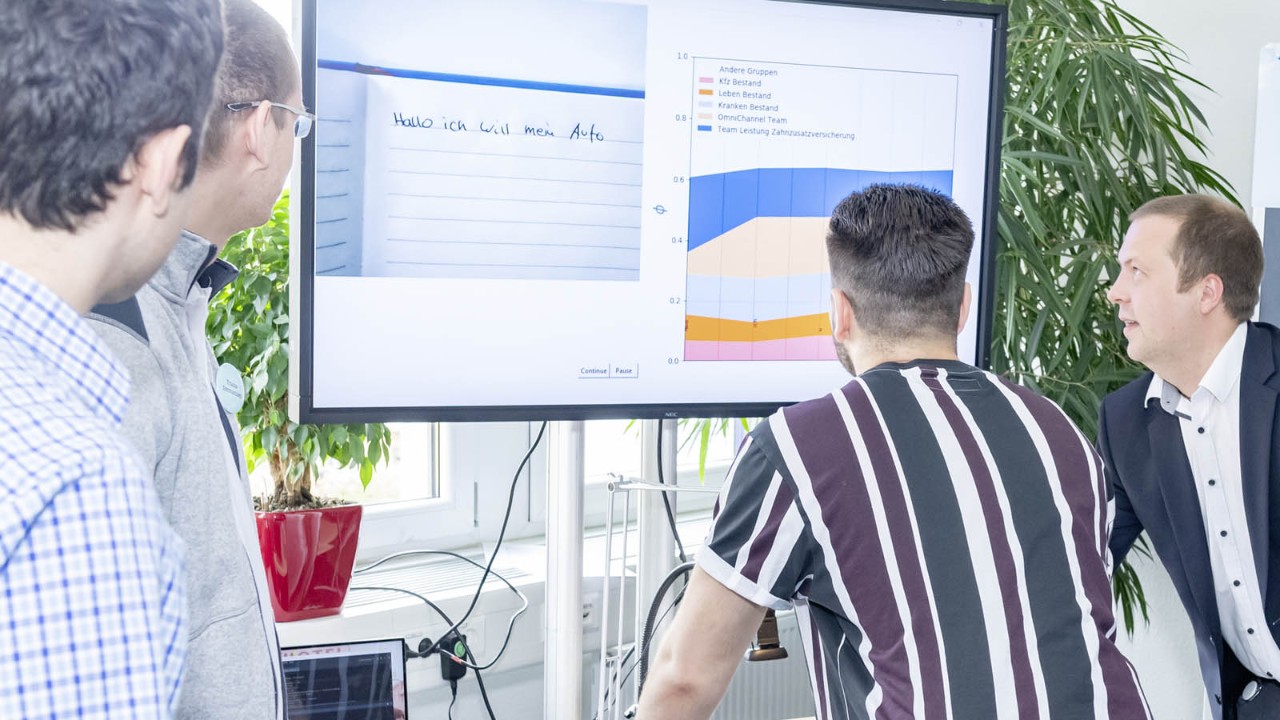Analysing and using data is crucial for businesses operating in the digital age. Robert Mertzig, a data scientist at ERGO (on the right), is trying to optimise the way we process large data sets.

Big Data – this snappy term is almost perfectly synonymous with the digitalised world. Huge data sets are produced on social media and various other internet platforms. The value of this data is rising steadily. “You can create value-added from the data a company generates,” says Robert Mertzig, a data scientist at ERGO. The data can help speed up processes in companies and in the development of new products, with a particular focus on improving customer satisfaction.
Data can also help to ease the burden on our employees. For example, employees should not have to read every single email that comes in before forwarding it to the right department. Emails can be categorised and sorted using artificial intelligence.
Mr. Mertzig explains: “If we can recognise certain patterns, we can make better predictions.” This is especially helpful if a lot of requests come in via email, as can happen in many different departments. “It’s a way to deal with time-consuming tasks,” explains Mr. Mertzig, who feels it is important to relieve employees of their “less interesting” tasks.
The entire process should also operate quietly in the background. “Ideally, employees should not be aware that AI is helping them,” says Mr. Mertzig, who is first and foremost a man of science. He received his doctor-ate in physics at CERN in Geneva and was working in biomedical engineering before joining ERGO a year ago. He describes ERGO as a “great employer.”
Mr. Mertzig realised early on what an exciting topic data is. “Data is of course important to scientists,” says the 37-year-old. But the difference for a data scientist is: “Science (as a subject) also comprises the creation of data through measurements; a data scientist’s work begins after that.” A data scientist creates a hypothesis and builds a model using the data they have.
Mr. Mertzig does not necessarily have to be an expert in insurance to carry out his job, rather he has to use his mathematical skills and have a feel for which solutions could work for a specific problem, and as quickly as he can.
Mr. Mertzig usually works at our locations in Düsseldorf and Nuremberg, however he also supports projects at ERGO offices in completely different towns. A big project, such as modelling the probability of contract terminations, can take up to two years to complete. Smaller projects, such as feasibility analyses planned for individual departments, could also be implemented within a month.
To wind down, Mr. Mertzig likes to exercise or play with his two children. “And I really like playing computer games,” he says, grinning.
Mr. Mertzig believes, “The future is data science.” He adds, “The fate of companies also depends on how quick-ly, comprehensively and decisively they use their data.” Several countries such as the USA are ahead in this area, particularly when it comes to the use of artificial intelligence at insurance companies. “Germany needs to be a bit bolder here.”
Text: Benjamin Esche
Most popular